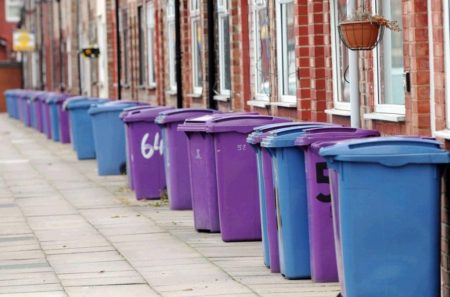Liverpool city council has opted not to introduce separate food waste collections in its bid to boost recycling levels, due to a lack of regional infrastructure to process the material.
A report to be considered by the council’s cabinet on Friday (17 February) advises collections of food waste are ‘not currently cost effective’.
The measure has been considered among a number of new initiatives targeting the 21,000 tonnes of material currently placed in Liverpool’s purple residual waste bins and black sacks which can be recycled.
Measures to capture this 17.2% fraction of waste and boost the city’s recycling rate include expansion of weekly recycling services to city centre blocks and removing an estimated 3,000 unauthorised purple bins from properties.
Another measure includes replacing current 55-litre boxes with 90-litre reusable sacks for recyclables at terraced properties. Weekly recycling collection trials will also be piloted in some terraced areas.
Kitchen waste
However, food waste will not be targeted despite making up 43.4% of material placed in the purple bins.
In its reasoning, the council claims: “The main reason the cost of food waste treatment is high at present is that there is limited infrastructure available regionally and therefore as a result of a supply and demand imbalance, costs are high.”
The report adds: “The council will continue to investigate opportunities to make kitchen waste collections financially viable. Using public finance there may be the opportunity to develop a local treatment facility to enable the Council and other Merseyside authorities to benefit from a low cost local treatment facility which would also provide a source of electricity and potentially gas as well as creating local job opportunities.”
At present, there are just a handful of large-scale AD plants in the North West of England accepting commercial and municipal food waste. But, separating food from other waste streams is currently seen as one of the key areas for action to boost recycling rates into higher levels.
Liverpool calculates that some 37,349 tonnes of waste currently placed in residual bins needs to be recycled each year if the council is to meet the UK’s 50% target by 2020. In 2015/16, the council achieved a recycling rate of 29.2%.
Disposal
The council is meanwhile budgeting £22.7 million on the disposal of waste through a levy paid to the Merseyside Recycling & Waste Authority in 2017/18.
In the report, the council states that gate fees for recyclables are currently £68.59 per tonne, while residual waste treatment cost is £131.09 per tonne. The levy charge to the council averages out at £128.28 per tonne.
The levy is set to increase 15% by 2019/20 in order to fund construction of the rail transfer station in Knowsley and the Wilton EfW plant in Redcar, Teesside, under MRWA’s new resource recovery contract with MERL, a Suez-led consortium (see letsrecycle.com story).
Liverpool concludes that while there are no immediate savings to be made by increasing recycling, future income could be generated by reducing the amount of residual waste it sends to the Wilton EfW – freeing up treatment capacity which can then be sold to third parties.
The post Liverpool opts against food waste collection in recycling drive appeared first on letsrecycle.com.
Source: letsrecycle.com Waste Managment




